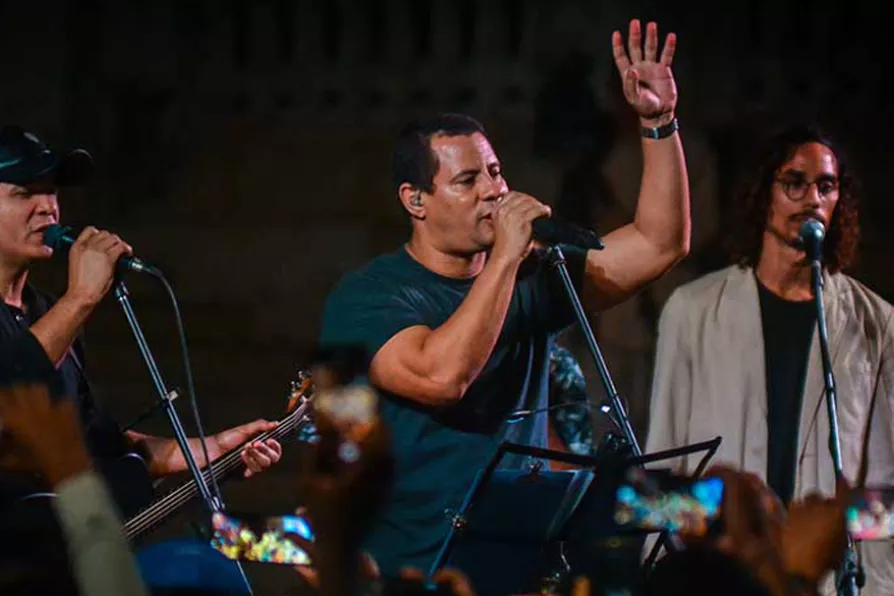Climate activist and writer JANE ROGERS introduces her new collection, Fire-ready, and examines the connection between life and fiction

 FINGER ON THE PULSE: Buena Fe perform in front of thousands on March 18 2023 at the University of Havana.
[Prensalatina]
FINGER ON THE PULSE: Buena Fe perform in front of thousands on March 18 2023 at the University of Havana.
[Prensalatina]
ART and politics is always a sticky wicket. How political is art? Can art be apolitical? Do we, and can we, separate the art from the artist? The often flippant response is we should consider art for art’s sake. Which is true, to an extent, a rubbish piece of art is still rubbish; strong politics does not redeem the art.
Another reason why discussions around art and politics is difficult, is that increasingly today we see many refer to “cancel culture.” Which in many cases is used primarily to stoke fury or is similarly brushed off because the individual in question has questionable politics. Though in a more dangerous manner, we see an increasingly antagonistic reactionary movement which is seeking to disrupt anything they believe to be “anti-them.” Leading to actual cancellations.
In May this year, the You Origin festival in Western France, https://pitchfork.com/news/kali-malone-church-concert-canceled-after-far-right-catholics-protest-profane-song-titles/, saw a wave of protest by right-wing Catholic groups who threatened the organisers and were perceived to be a threat to the whole town. Which led the mayor of Saint-Cornely to cancel the event. Similarly, in Spain, Cuban musician Israel Rojas of Buena Fe, https://www.youtube.com/watch?v=ltXBaTvq_Hk, was attacked by right-wing individuals after a performance in Madrid, because he was Cuban. The Cuban poet Nancy Morejon, https://peoplesdispatch.org/2023/06/01/renowned-poet-uninvited-from-festival-in-latest-anti-cuba-attack/, was also targeted simply for being Cuban. The French poetry festival le Marche de la Poesie came under heavy criticism for having a Cuban artist as the Honorary President of the festival. Following campaigning from right-wing groups, the festival dropped Morejon.

While ordinary Americans were suffering in the wake of 2005’s deadly hurricane, the Bush administration was more concerned with maintaining its anti-Cuba stance than with saving lives, writes MANOLO DE LOS SANTOS

A judge in a German court ruled that the ban activity imposed on renowned Dr Ghassan Abu-Sittah was unlawful, reports LEON WYSTRYCHOWSKI

BEN LUNN alerts us to the creeping return of philanthropy and private patronage, and suggests alternative paths to explore

On the 80th anniversary of liberation from Nazi-fascism, left forces in Italy mobilise against genocide, armament, and the Meloni government, reports ANA VRACAR










